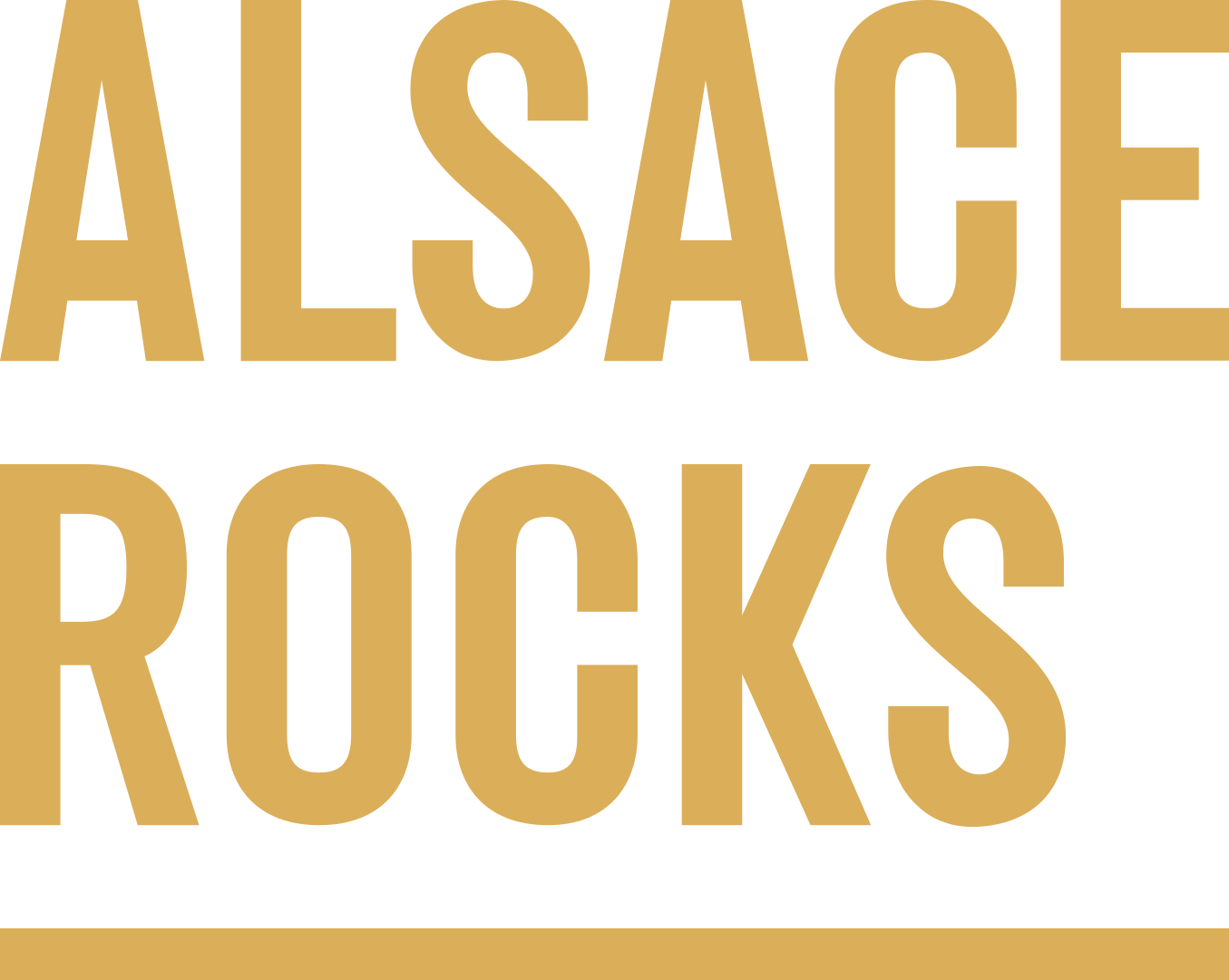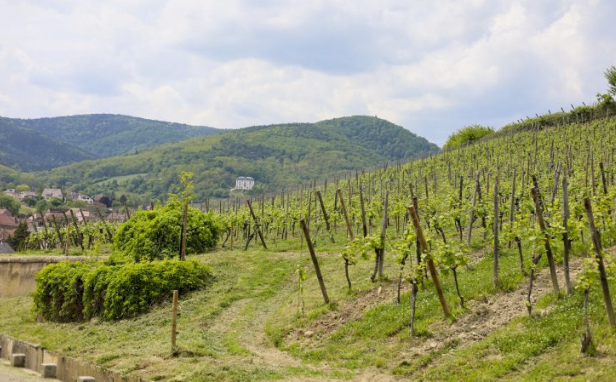Vineyard in Alsace | Photo Credit: Katie Melchior
“I”m trying to reform the Schlossberg,” says winemaker Eddy Faller of Domaine Weinbach, referring to the Grand Cru vineyard in Alsace. “Fewer grape varieties, all organic. For me, that would be the dream.”
In addition to continuing his family’s legacy at Domaine Weinbach, Faller is the president of the Grand Cru Schlossberg Association, just outside of Colmar, in the Alsace region of eastern France. It’s a grand cru home to a few dozen producers and a couple of smaller vignerons who work for a cooperative. Not everyone in the area is organic, nor is everyone as enthusiastic as Faller about growing Riesling, Schlossberg’s signature grape. But for the fourth-generation winemaker, these two changes are key. And he’s not the only producer who has reform at the top of his mind.
In France, Alsace is a leader in the natural, organic, and biodynamic wine movement. Like the Loire Valley and parts of the Beaujolais, winemakers in Alsace are unafraid to push boundaries, experiment, and trade notes on experiences. Still, the weight of tradition is immense, and change is often easier said than done.
In Alsace, rules take on new specificities: it’s the only French region where varietal labeling is not only permitted but necessary to be a part of the appellation system (with few exceptions). It’s also the only one where a monovarietal wine’s contents must be 100% that variety. In Burgundy, by contrast, only 85% of Pinot Noir is required to make Gevrey-Chambertin. That also holds true in the U.S., where varietal labeling is just as important as in Alsace, but where a wine doesn’t have to be 100% monovariety to be labeled as such. Whatever the reason for this—perhaps the Germanic influence, or the austereness imposed by the Vosges Mountains— many producers are now ready to test and change. They’re hopeful that now outdated regulations may evolve, just as their wines do.
“Of course, we’ve made orange wines in the past,” says Céline Josmeyer, one half of the sister duo behind Domaine Josmeyer. “We’ve even sent our grapes to our friends in the Loire for them to vinify as they like. You have to experiment.”
Beyond grand crus and natural wines, even more winemakers want to grow grapes that aren’t currently permitted by the appellation to see if it’s possible to apply their winemaking savoir-faire to nontraditional varieties. “I love Beaujolais,” says Julien Trimbach, the 13th-generation winemaker at Maison Trimbach. “So, we’ve found a little plot where we’ll be planting some Gamay.” Others are even trying Syrah and Merlot, too.
Change is also underfoot in the broader region: there will soon be a vote deciding whether irrigation will be permitted in the region due to droughts caused by climate change. Where some regions struggle with too much rainfall, Alsace has the opposite problem: it is France’s driest region. If the vote on irrigation passes, Alsace would be one of the first French regions to allow irrigation within the appellation system. Dry farming, working with the land, and relying on what nature gives is paramount to France’s elegant and complex winemaking style. It’s no surprise, then, that many winemakers are against it.
“[Irrigation is] how you make a lot of high volume, low-quality wine,” says Jean-Frédéric Hugel of Famille Hugel, one of the largest producers in the region.
He’s not the only one that thinks so. Olivier Humbrecht, of Domaine Zind-Humbrecht, is perhaps the most outspoken critic of irrigation: “Adaptation to a changing world is good,” he says. “But wine is a luxury product. If I can’t make wine based on what nature gives me, I’m not about to take water away from a product essential for human survival, like wheat. It’s just not right.”
The vote on irrigation happens this week, and the reason for the timing? A predictably hot, dry summer is right around the corner.
While not all producers in Alsace believe in the same things, they all generally agree that it’s time for change—as long as said change is in line with their values surrounding sustainability and experimentation. And while this writer loves a good bottle of Riesling, she hopes to open some Alsatian Gamay in a few years’ time, too.
Author’s Note: Since publishing this article, the vote on irrigation passed in Alsace, which means it is now possible to make wines in the AOC system while using irrigation on vines.

